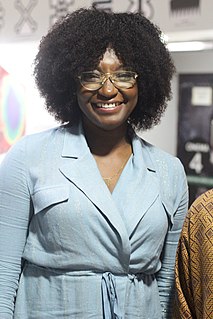A Quote by W. Somerset Maugham
People do tell a writer things that they don't tell others. I don't know why, unless it is that having read one or two of his books they feel on peculiarly intimate terms with him; or it may be that they dramatize themselves and, seeing themselves as it were as characters in a novel, are ready to be as open with him as they imagine the characters of his invention are.
Related Quotes
There are three infallible ways of pleasing an author, and the three form a rising scale of compliment: 1, to tell him you have read one of his books; 2, to tell him you have read all of his books; 3, to ask him to let you read the manuscript of his forthcoming book. No. 1 admits you to his respect; No. 2 admits you to his admiration; No. 3 carries you clear into his heart.
One can't prescribe books, even the best books, to people unless one knows a good deal about each individual person. If a man is keen on reading, I think he ought to open his mind to some older man who knows him and his life, and to take his advice in the matter, and above all, to discuss with him the first books that interest him.
I'm mostly interested in characters and how they manifest themselves in their relationships. I'm delighted that people relate to the characters in 'Bojack,' and hopefully they will too to the characters in 'Undone.' If they understand themselves or feel seen in a new way, I think that's a wonderful thing.
Phrases like Worship Service or Service of Worship are tautologies. To worship God means to serve him. Basically there are two ways to do it. One way is to do things for Him that He needs to have done - run errands for Him, carry messages for Him, fight on His side, feed His lambs, and so on. The other way is to do things for Him that you need to do - sing songs for Him, tell Him what's on your mind and in your heart, in general rejoice in Him.
The script in many ways is limiting and novel is liberating. You get to go into the heads of your characters and their background and have fun with them; something you are discouraged from doing with a script. With the novel, I can tell you what the characters are thinking, I can tell you their view of the world, background information, things I wouldn't dare touch in the script.
I wanted to walk over there. I wanted to curl up beside him, lean against him, talk to him. I wanted to know what he was thinking. I wanted to tell him everything would be okay. And I wanted him to tell me the same thing. I didn't care if it was true or not- I just wanted to say it. To hear it, to feel his arms around me, hear the rumble of his words, that deep chuckle that made me pulse race
Richard Curtis, the writer and director of Love Actually, is brilliant at many things, but his genius, I submit, is for thrusting characters into situations in which they feel driven to humiliate themselves. Which is why we love them, especially when it's all in the name of love. He is the Bard of Embarrassment.
Having read my share of tell-alls over the year, including some that were passed off as autobiographies, I mostly feel sad - sometimes for the writer and sometimes for all the people in his way. I hope that the process of writing the tell-all gives some release and closure on what clearly was an unpleasant and unfulfilling life experience.
I said to him, "Shall I tell you where the men are who believe most in themselves? For I can tell you. I know of men who believe in themselves more colossally than Napoleon or Caesar. I know where flames the fixed star of certainty and success. I can guide you to the thrones of the Super-men. The men who really believe in themselves are all in lunatic asylums.
His books were part of him. Each year of his life, it seemed, his books became more and more a part of him. This room, thirty by twenty feet, and the walls of shelves filled with books, had for him the murmuring of many voices. In the books of Herodotus, Tacitus, Rabelais, Thomas Browne, John Milton, and scores of others, he had found men of face and voice more real to him than many a man he had met for a smoke and a talk.







































